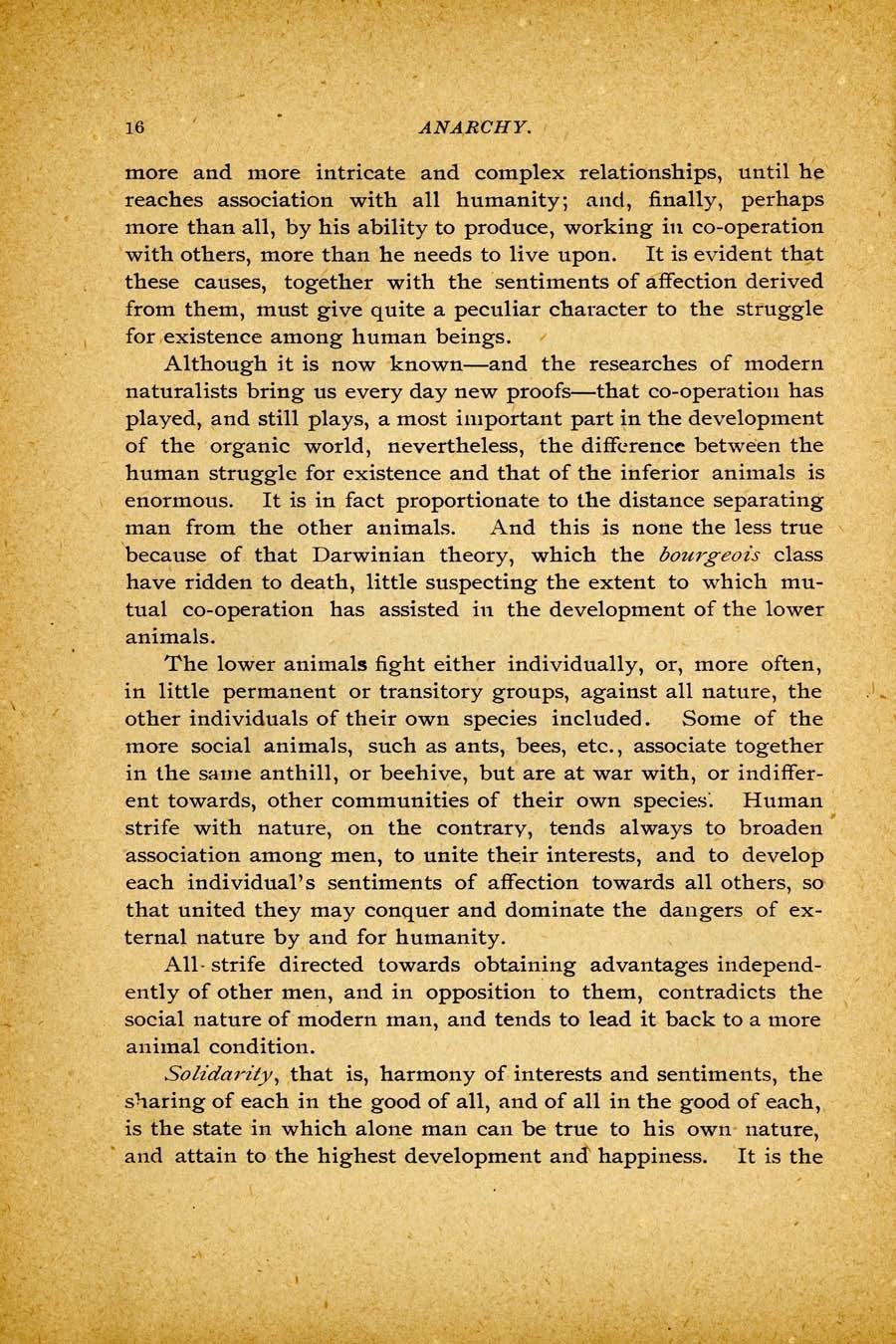more and more intricate and complex relationships, until he reaches association with all humanity; and, finally, perhaps more than all, by his ability to produce, working in co-operation with others, more than he needs to live upon. It is evident that these causes, together with the sentiments of affection derived from them, must give quite a peculiar character to the struggle for existence among human beings.
Although it is now known—and the researches of modern naturalists bring us every day new proofs—that co-operation has played, and still plays, a most important part in the development of the organic world, nevertheless, the difference between the human struggle for existence and that of the inferior animals is enormous. It is in fact proportionate to the distance separating man from the other animals. And this is none the less true because of that Darwinian theory, which the bourgeois class have ridden to death, little suspecting the extent to which mutual co-operation has assisted in the development of the lower animals.
The lower animals fight either individually, or, more often, in little permanent or transitory groups, against all nature, the other individuals of their own species included. Some of the more social animals, such as ants, bees, etc., associate together in the same anthill, or beehive, but are at war with, or indifferent towards, other communities of their own species. Human strife with nature, on the contrary, tends always to broaden association among men, to unite their interests, and to develop each individual's sentiments of affection towards all others, so that united they may conquer and dominate the dangers of external nature by and for humanity.
All strife directed towards obtaining advantages independently of other men, and in opposition· to them, contradicts the social nature of modern man, and tends to lead it back to a more animal condition.
Solidarity, that is, harmony of interests and sentiments, the sharing of each in the good of all, and of all in the good of each, is the state in which alone man can be true to his own nature, and attain to the highest development and happiness. It is the
